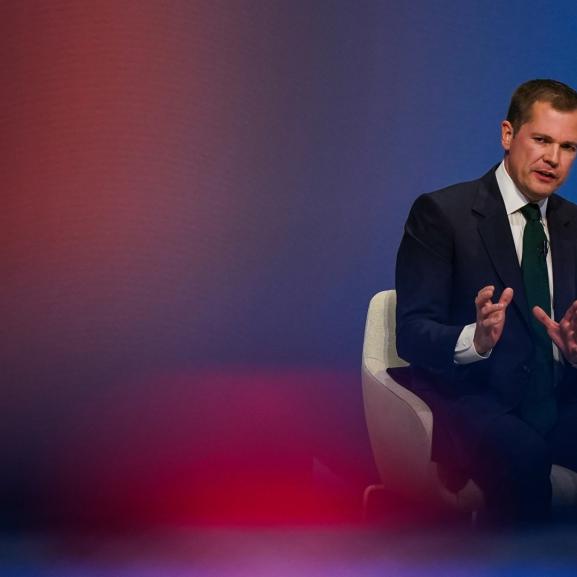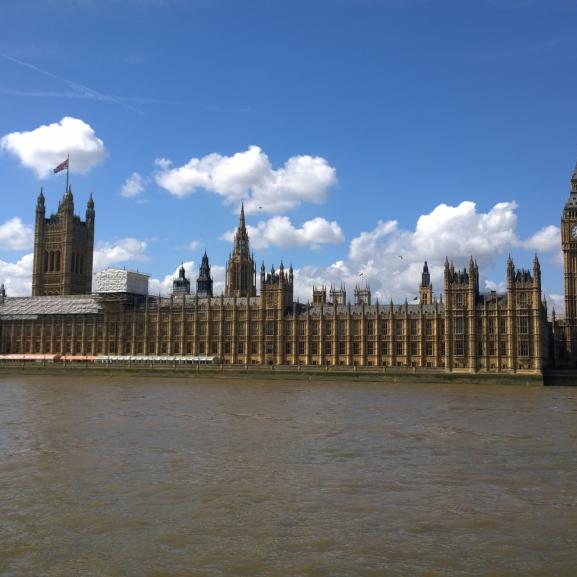MF Calls for Disciplinary Action Against US Military Doctors Involved in Forced Feeding
The Medical Foundation is pressing for disciplinary action to be taken against US military doctors who have breached medical ethics by force-feeding hunger striking detainees at Guantánamo Bay, Cuba.
More than 80 of the 500 plus terror suspects being held without trial at the base went on hunger strike last December. That figure has dropped to four after a number of hunger strikers were restrained and force fed with nasogastric tubes.
The World Medical Association's 1975 Declaration of Tokyo, reinforced by the 1991 WMA Declaration of Malta, states clearly that "where a prisoner refuses nourishment and is considered by the doctor as capable of forming an unimpaired and rational judgement concerning the consequences of such voluntary refusal of nourishment, he or she shall not be fed artificially."
The American Medical Association was a co-signatory to both declarations and in January the Medical Foundation wrote asking it to reaffirm that its official position on forced-feeding remained in accord with the WMA. The MF added that it was incumbent on the AMA to take disciplinary action against any of its members known to have violated medical ethics in such a fashion.
The AMA replied that late in 2005 it had publicly stated that it still endorsed the WMA Tokyo declaration. It repeated that endorsement in a statement issued earlier this month, after 260 doctors, including MF psychiatrist and psychotherapist Dr William Hopkins, wrote an open letter to British medical journal The Lancet calling for forced feeding to be stopped.
In the statement, the AMA said it had met with the US Department of Defense to voice its concerns, "provide them with relevant policies and offer our expertise with the goal of ensuring that U.S. policies on detainee treatment comport with ethical standards of medicine."
On the question of disciplining doctors, however, the disclaimed responsibility saying: "we are not a regulatory or licensing agency," - a stance that the Medical Foundation does not accept.
In a new letter to the AMA, Dr Hopkins and the MF's director of public affairs Sherman Carroll state: "if the medical profession is to stop the inappropriate and unethical force-feeding of detainees, the various medical bodies, whether official or professional in nature, must do all in their power to discipline those doctors who violate the clear ethical guidelines of our profession.
"We respectfully suggest that the AMA does have it within its power to expel from the AMA any individual doctor who, having been warned of the consequences, continues to force-feed detainees against their will. Is it not also within the power of the AMA to bring this matter to the attention of the relevant State medical licensing authorities in the form of a complaint?
"The appropriate State licensing authority would then be obliged to investigate and, if appropriate, discipline the offending medical doctor who violates the ethical standards of the profession."
Recent Commander of the US Navy Hospital at Guantánamo Bay, Dr John S. Edmondson, defended forced feeding saying that it "was authorised through a lawful order of a higher military authority." In a letter to Dr David Nicholl, Consultant Neurologist at City Hospital, Birmingham, who organised the letter to the Lancet, he went further.
"You mention both the Declaration of Tokyo and the Declaration of Malta as prohibiting force feeding," he wrote. "But we both know the truth is much more complicated. They also allow intervention by the attending physician when the patient's mental status is affected by their malnutrition.
"There is also the requirement that the patient be free of coercion and have family available to participate in the decision to undertake a hunger strike to the death. Neither condition is met in this instance. I would agree that the right of autonomy is fundamental to every patient, including detainees, but it is incumbent upon the physician to insure that the patient has the capability to arrive at an unencumbered and informed decision."
Dr Nicholl replied: "Clearly if individuals are incapable of coming to an informed decision through incapacity, forced feeding could be justified. However, where a competent individual has previously been counselled and it was clear that they had made a voluntary decision to starve themselves to death, they should be left to do so."
Examples he cited in the UK were the late Bobby Sands and other IRA hunger strikers who died in 1980/81, and Barry Horne, a convicted firebomber and animal rights activist who died in prison from liver failure after three hunger strikes.
Dr Nicholl pointed out that Dr Edmondson, in a 65-page affidavit submitted to a US court explaining the approach taken to hunger strikers at the base had not once mentioned the mental competency of the detainees.
And he quoted the view of Dr Hernan Reyes from the International Committee of the Red Cross who in a paper entitled Medical and Ethical Aspects of Hunger Strikes in Custody and the Issue of Torture, states: "Doctors should never be party to actual coercive feeding, with prisoners being tied down and intravenous drips or oesophageal tubes being forced into them. Such actions can be considered a form of torture, and under no circumstances should doctors participate in them, on the pretext of "saving the hunger striker's life". Heeding the informed consent of a hunger striker, confirmed within the trust of the doctor-patient relationship, and respecting the intrinsic dignity of the fasting prisoner he is treating is certainly part of the doctor's duty in looking after the patient's welfare."
The Medical Foundation maintains that provided the hunger striker is engaged in this form of expression by his (or her) own free will which, as Physicians for Human Rights has noted, is one of the few forms of expression available to prisoners, then forced feeding is a fundamental breach of medical ethics.
March 29 2006






